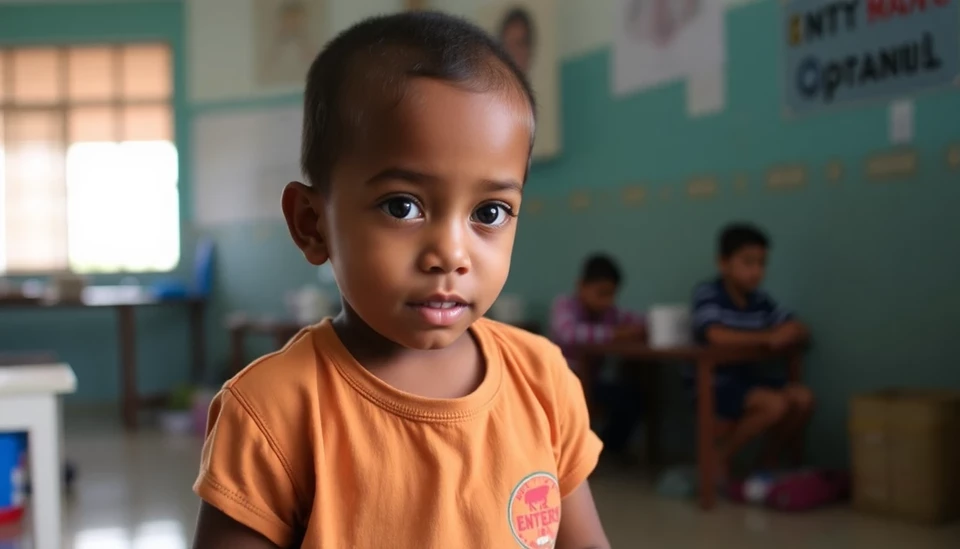
In a significant development for global health, children at risk of multidrug-resistant tuberculosis (MDR-TB) can now access preventive treatment options that could save countless lives. This innovative approach marks a crucial step in the fight against tuberculosis, particularly in regions where the disease is prevalent and poses severe risks to the pediatric population.
According to recent reports, the World Health Organization (WHO) has launched new guidelines encouraging the administration of preventive therapy to children who are either in close contact with individuals diagnosed with MDR-TB or who are at high risk of infection. The strategy is particularly vital in countries with high incidences of TB, which has seen a dramatic rise in drug-resistant strains, threatening to undermine public health efforts worldwide.
MDR-TB is a form of tuberculosis that does not respond to the standard treatments, making it particularly difficult to manage and control. The situation is a cause for concern, especially among children, who are more vulnerable to the severe consequences of TB infection. The WHO's recommendations aim to mitigate this risk by implementing preventive measures that could potentially curtail the spread of the disease in younger populations.
The new guidelines emphasize the importance of early screening and identification of at-risk groups, allowing healthcare providers to intervene before the disease progresses. This proactive measure not only addresses the immediate health concerns associated with MDR-TB but also aims to decrease transmission rates within communities.
Health experts have hailed this preventive approach as a pivotal move in combating one of the most pressing public health challenges today. By focusing on children, who represent a significant demographic in TB transmission, the strategy is designed to ensure that future generations are less affected by this debilitating disease.
Implementing these guidelines will require substantial efforts from governments and healthcare systems globally. Health authorities will need to prioritize funding for TB prevention programs, ensuring that the new protocols can be effectively rolled out in both urban and rural settings.
This approach not only showcases a commitment to protecting children but also highlights the global health community's determination to eradicate tuberculosis as a major health threat. By addressing MDR-TB from a preventive standpoint, the hope is to create a fortified barrier against the disease that could ultimately lead to significant reductions in incidence rates and fatalities.
As the world battles against not just tuberculosis but a spectrum of health challenges, this announcement brings forth a beacon of hope. Continued collaboration and urgency are essential in the implementation of these lifesaving strategies, which will be crucial in safeguarding the health of future generations.
Health organizations are urging communities and stakeholders alike to rally around this initiative, promoting awareness and education about TB and MDR-TB prevention. The lifesaving potential of early intervention could transform the landscape of these diseases, ultimately leading to a healthier future for children worldwide.
In summary, the introduction of preventive treatment options for children at risk of multidrug-resistant tuberculosis represents a crucial advancement in public health. This proactive approach aims to protect not only the vulnerable pediatric population but also the broader community from the devastating effects of infection.
As this initiative unfolds, it will be imperative for global leaders, parents, and healthcare providers to remain vigilant and committed to eradicating the threat posed by tuberculosis, ensuring that advancements in treatment and prevention reach those who need it most.
#MDR-TB #Tuberculosis #PublicHealth #ChildHealth #DiseasePrevention #GlobalHealth #WHO #HealthInitiatives
Author: John Harris




